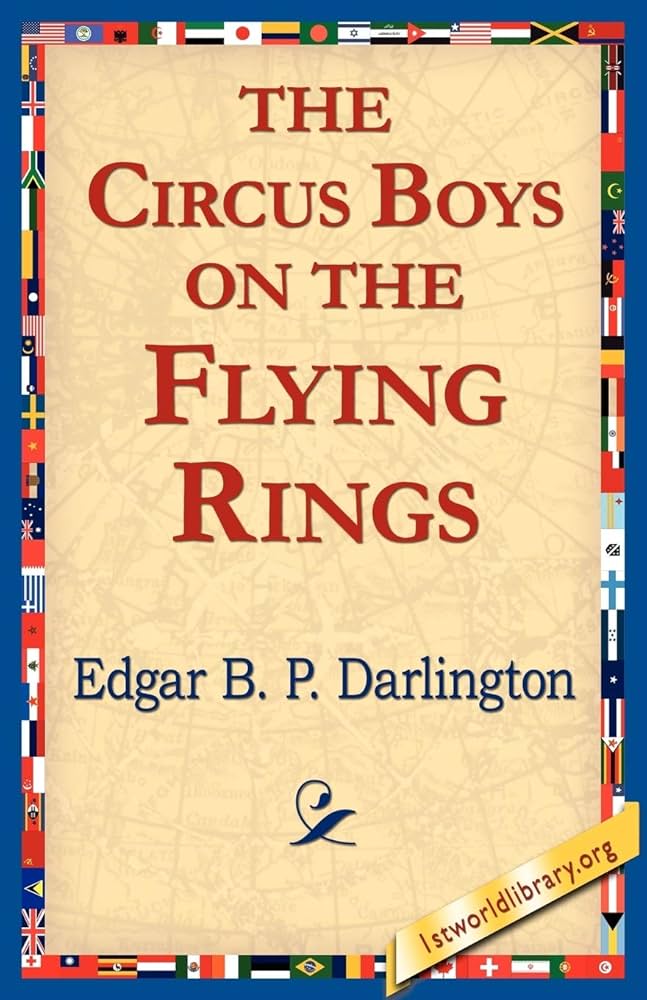Chapter V — The circus boys on the flying Rings
byChapter V draws readers deeper into the pulse of circus life as Phil Forrest begins his day with an earnest gesture—offering a circus ticket to Widow Cahill. Her hesitant gratitude reflects both surprise and warmth, making the moment quietly touching. Phil’s joy is as much about her reaction as it is about the excitement of the coming parade. With the energy of a boy chasing a dream, he rushes to the circus grounds, where the quiet field has transformed into a wonderland of color, sound, and motion. Costumes sparkle under the morning sun, animals shuffle restlessly in their painted wagons, and performers prepare with the seriousness of soldiers before battle. The air feels charged, not just with performance nerves, but with something greater—belonging. Phil is soon recognized by a circus assistant, not just as a spectator, but as a brave soul worth inviting into the pageantry, marking his unofficial induction into the circus world.
Dressed as a clown and armed with a kazoo, Phil joins the parade with wide eyes and a proud heart. No one in the crowd realizes the smiling performer is the same boy who bravely faced danger days before. That anonymity makes the experience more meaningful, allowing Phil to simply live in the joy of the moment. As the band marches forward, his steps synchronize with the rhythm, and the cheers from the crowd swell with every colorful act that passes. Among the onlookers, he spots Widow Cahill, her eyes wide with childhood glee, a moment that cements Phil’s belief in simple joys and shared magic. His heart feels full—not from recognition, but from contribution. The circus, in that moment, isn’t a distant spectacle. It’s something he’s part of, and his smile, hidden beneath the paint, says it all.
The narrative takes a sharp turn when a riderless pony begins to panic during the parade. The broken bit dangles uselessly as the woman clinging to the saddle loses control and is dragged along the dirt road. The cheers stop. Spectators freeze in fear, unsure of whether to scream or rush forward. Phil watches, heart pounding, recognizing the real danger behind the glittering show. Mr. Sparling doesn’t hesitate. He dives toward the scene, his urgency cutting through the chaos. The energy of the moment changes from celebration to crisis, exposing the fragile balance between spectacle and safety. In this world of performance, even trained animals and expert riders can be undone by one loose strap.
Phil watches with awe as Sparling lunges into the fray, managing to grab the woman’s arm in a desperate attempt to pull her free. It’s a moment that reinforces everything Phil has begun to admire about circus life—bravery without hesitation, action before fear. The image stays with him long after the parade moves on. As calm slowly returns, the circus crew resumes formation, but the mood is changed. For Phil, the moment is not just about witnessing courage—it’s about understanding the weight that performers and managers carry to keep the illusion alive while protecting everyone involved. He sees that being part of the circus is not just about entertainment. It’s about responsibility.
After the parade ends, Phil removes his clown makeup slowly, reflecting on how surreal it felt to walk through town as someone else. The crowd had clapped for him, laughed at his kazoo, and yet not a soul knew his name. And that was strangely perfect. For once, his deeds weren’t about credit—they were about being present, doing something joyful, and learning what it meant to truly belong. That afternoon, the circus grounds buzzed not just with preparations, but with whispers about the near-accident. Phil sat quietly near one of the wagons, his thoughts spinning, not from fear but from awe. What began as a day about music and costumes had become a lesson in bravery, kindness, and grace under pressure.
By nightfall, the big top would once again fill with gasps and applause. Yet Phil knew something most others didn’t—that behind the curtain, every performer carried more than an act. They carried risks, instincts, and the courage to act when it mattered. He wasn’t just watching anymore. He was becoming part of that world, not by trying to be seen, but by understanding what it meant to be truly present.

